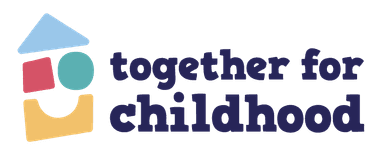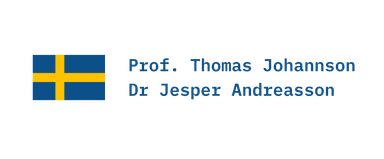
21 September 2020 • Update
Research Leadership blog 1 by Dr Anna Tarrant: Launching my new research leadership blog series
Hello and welcome to my new research leadership blog! This first post has come out much later than I originally anticipated – the pandemic has created all sorts of challenges and pressures on my time and energy as an academic mum, but I am keen to get this started now. One thing I have been planning to do since I found out that I had been awarded a UKRI Future Leaders Fellowship as part of Cohort 2 is to write a blog series that traces and records my journey and transition from a relatively independent early career researcher to a mid-career scholar gaining experience in research management and leadership. As far as I am aware, there isn’t much discussion or reflection out there about this process. I suppose it’s quite a niche area! However, afforded by the longitudinal timeframes of the Following Young Fathers Further study, I plan to write this blog to develop my own reflexivity about being a UK researcher and research manager in progress as part of a professional biographical record. I also hope that it offers some useful insights or even nuggets of advice about the process of research that are of wider application. This, the first post in my Research Leadership blog series, provides a brief bit of background about me, explains the rationale behind writing a reflexive blog, and notes the importance of good mentorship.
A little something about me first
In reading this post, you may already know me or you may not know much about me at all. In brief, I have now been a social researcher and academic for over ten years. I started my PhD at Lancaster University in 2007 and gained my doctorate in 2011. In the six years that followed, I had several teaching and research contracts, that enabled me to build my research career and interests, albeit underscored by the precarity and insecurity of multiple fixed term contracts that took me all over the UK (mainly Lancaster, Milton Keynes and Leeds). Through all of this insecurity, I worked as strategically as was possible to carve out a clear research narrative that coalesces around a feminist informed understanding of men’s care responsibilities across the lifecourse. I applied and was rejected for multiple pots of research funding and eventually, having briefly left academia to work in the charity sector, was awarded a Leverhulme Trust early career fellowship that brought me back into academia and proved to be career changing. I eventually secured a permanent Lectureship in Sociology at the University of Lincoln, an institution that for the first time, felt very much like ‘home’. At Lincoln, I was supported to develop the Future Leaders application on which this blog is based. I will reflect in more depth on aspects of this trajectory as my blog unfolds but for now I hope you have gained some sense of my challenging yet rewarding research trajectory.
Keeping a diary, being reflexive
To some extent I have always charted my career journey, albeit patchily. For me, this is not just about capturing the process but about carving out a space for being reflexive. Being reflexive entails more than describing what we do and what we observe. It involves the development of a critical awareness of self (and others) via reflection and analyses of key decision making. For my own personal use, I take regular and copious notes about my research and career progress, in what I call my ‘Academic Diary’. I use this to record and think through the decisions that I make and just occasionally this has even formed the basis of journal articles. My most recent publication for example makes reference to one of my past reflections in a blog. This paper, published in Sociological Research Online considers the ethics of camera choice in my Leverhulme Trust funded study ‘Men, Poverty and Lifetimes of Care’, which explored men’s care responsibilities in low-income families (please do contact me if you’d like access to a copy!). The blog post was originally written for my research blog, ‘Diary of an Early Career Academic‘ that I started many years ago, when I was early in my career. I still update this site occasionally but finding the time to nurture it and keep it dynamic as an individual who also has care responsibilities for two young children, has been no easy task. Nonetheless, it is interesting and even nostalgic to look back on this now, to see where I started, how far I’ve come and to look forward and think about where I still might be heading. I’m also convinced of the need to record, record, record! Sometimes what I think are just my ramblings, really do result in something useful!
The significance of strong mentorship
I also start this blog as an informal kind of mentorship for other aspiring researchers. Mentorship from senior colleagues has significantly influenced my own career trajectory. Support and investment from highly successful female academic leaders, like Prof. Brid Featherstone, Dr Kahryn Hughes and Prof. Bren Neale in particular, has been instrumental to my career progression and intellectual advance to date. My work with Brid Featherstone when we worked together at the Open University was undoubtedly the catalyst for my research career. Under Brid’s leadership, I had the opportunity to establish my own research narrative around contemporary grandparenting and fathering. The mentorship provided by Kahryn Hughes for my Leverhulme Trust Early Career Fellowship award has also been transformative. What started as a mentoring relationship became a productive collegial relationship through which we have advanced methodological and substantive agendas through co-authored publications, conference presentations and bespoke training in qualitative secondary analysis. Emerita Professor Bren Neale, eminent in research about qualitative longitudinal methodologies and family sociology, has also mentored me into taking forward a number of intellectual projects, including the Following Young Fathers Further study.
The Fellowship also enables me to take these productive models of mentorship forward by investing in a strong network of new and emerging scholars in Family Sociology and building a critical mass of expertise in QL methodologies. I anticipate that this will enhance the quality of the outcomes from the study but also develop other emerging early research leaders in Laura and Linzi, under my leadership. My hope too is that Ben, as project administrator and research support for the project, will benefit from and be inspired by working with the team, by observing and contributing to the workings of an internationally significant research study.
I plan to post new blog posts in this series to the Following Young Fathers Further study website and will do so as regularly as possible as the study progresses. My first few blogs focus on my journey to securing the fellowship but I anticipate that the focus will evolve into reflections on the study as it progresses. I look forward to sharing this journey with you all, my readers.





